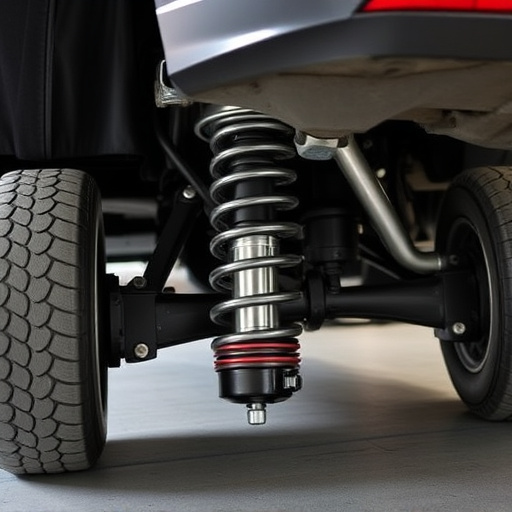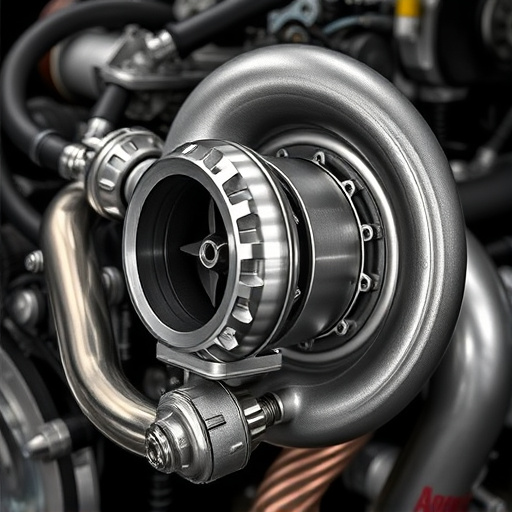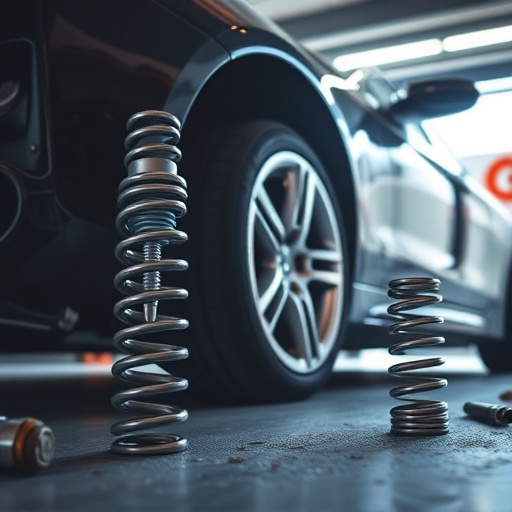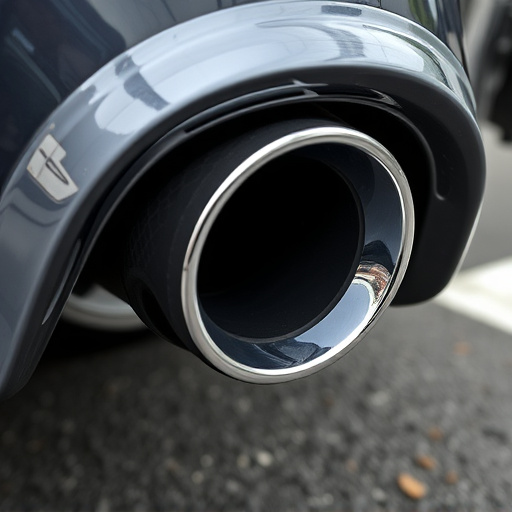Muffler bypass, while popular among car enthusiasts for enhancing performance and sound, poses significant legal risks due to varying jurisdiction regulations on vehicle noise levels and emissions. Unauthorized modifications can lead to excessive noise pollution, potential environmental harm, and violations of safety and air quality standards, resulting in penalties such as fines or vehicle seizure. Understanding local laws and obtaining proper permits is crucial to avoid these issues.
In today’s digital era, modifying vehicles for enhanced performance has become increasingly popular. One such modification is the muffler bypass, which can significantly impact noise levels and exhaust emissions. This article delves into the legal concerns surrounding daily driving with a muffler bypass, exploring the legal framework, environmental and safety implications, as well as regulatory compliance and potential penalties. Understanding these aspects is crucial for both enthusiasts and authorities alike to ensure responsible and lawful modifications.
- Understanding Muffler Bypass: What It Entails and Legal Framework
- Environmental Impact and Safety Concerns: A Legal Perspective
- Regulatory Compliance and Potential Penalties for Unauthorized Modifications
Understanding Muffler Bypass: What It Entails and Legal Framework
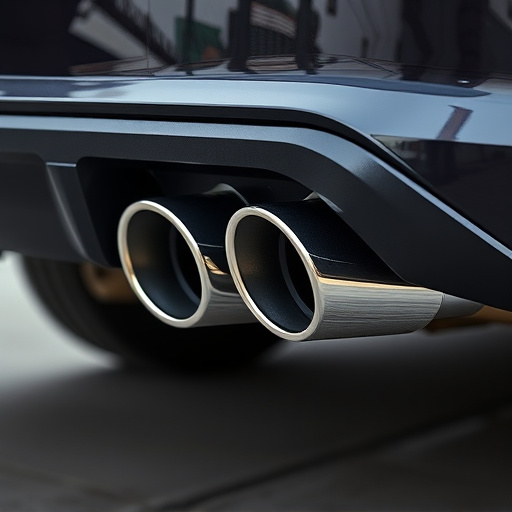
Muffler bypass, also known as exhaust backpressure reduction, is a modification to a vehicle’s exhaust system that involves bypassing part of the muffler to improve engine performance and reduce backpressure. This modification is often sought after by car enthusiasts who desire enhanced engine output and a more aggressive sound from their vehicles. However, it’s crucial to understand that while muffler bypass may offer these perceived benefits, it also raises legal concerns.
The legal framework surrounding muffler bypass varies across jurisdictions. In many places, modifications to a vehicle’s exhaust system are subject to regulations aimed at maintaining noise levels and ensuring safety. Exhaust mufflers are designed to muffle noise generated by the engine, and removing or bypassing them can lead to excessive noise pollution, violating local laws. Additionally, altering a vehicle’s emissions system, including muffler bypass, may impact air quality and exhaust gas standards set by regulatory bodies. This is particularly relevant when considering performance exhaust systems that could potentially increase harmful emissions, impacting both environmental and public health regulations.
Environmental Impact and Safety Concerns: A Legal Perspective
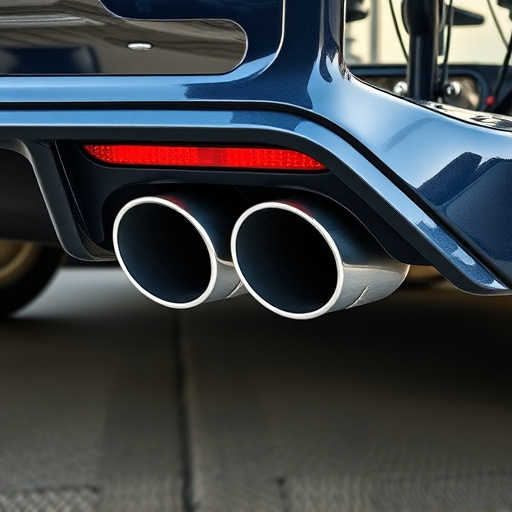
The modification of a vehicle’s exhaust system, such as installing a muffler bypass, raises significant legal considerations regarding environmental impact and road safety. In many jurisdictions, laws exist to regulate emissions and ensure vehicles meet specific pollution standards. Muffler bypasses, by bypassing the muffler’s noise-reducing capabilities, can potentially increase noise levels and contribute to air pollution. This not only affects nearby residents but also has broader implications for public health and environmental conservation.
From a legal standpoint, modifying a vehicle’s exhaust system without adherence to regulatory guidelines can result in penalties, including fines and vehicle seizure. Moreover, the installation of high-performance parts like performance brakes or performance exhaust, often associated with modified vehicles, must comply with safety standards to prevent accidents caused by enhanced speed or handling capabilities. Non-compliance not only endangers drivers but also poses a risk to other road users, underscoring the necessity for careful consideration and adherence to legal requirements surrounding these modifications.
Regulatory Compliance and Potential Penalties for Unauthorized Modifications
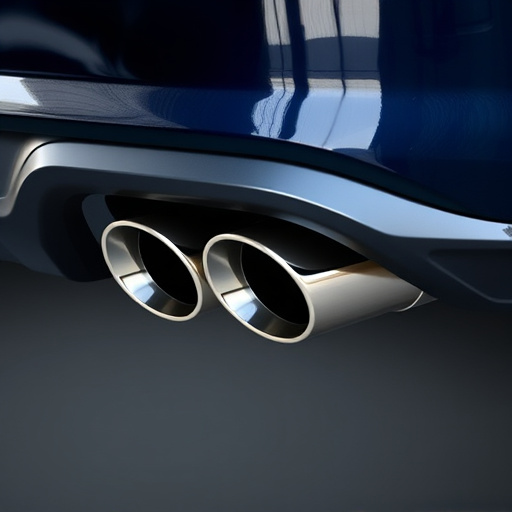
Modifying a vehicle’s exhaust system, such as installing a muffler bypass, may seem like a simple way to enhance performance, but it comes with significant legal implications. In many regions, altering a vehicle’s emissions control system without proper authorization is illegal and considered a violation of environmental regulations. These regulations are in place to ensure the safety of drivers and protect public health by reducing harmful exhaust emissions.
The consequences for non-compliance can be severe. Fines, vehicle impoundment, and legal action against the owner or modifier are common penalties. The specific rules vary by jurisdiction, but unauthorized modifications, especially those related to exhaust mufflers and high-performance parts like suspension components, can lead to substantial legal troubles. It’s crucial to understand local laws and obtain any necessary permits before making such changes to avoid these potential penalties.
While muffler bypass may offer performance enhancements, it raises significant legal concerns regarding environmental regulations and safety standards. The unauthorized modification of exhaust systems, including muffler bypasses, can result in severe penalties due to non-compliance with strict regulatory frameworks. As the practice continues, a heightened focus on enforcement and education is necessary to ensure road safety and protect both drivers and the environment from potential hazards associated with modified vehicles. Understanding these legal implications is crucial for both vehicle owners and authorities alike when navigating the complexities of muffler bypass modifications.








